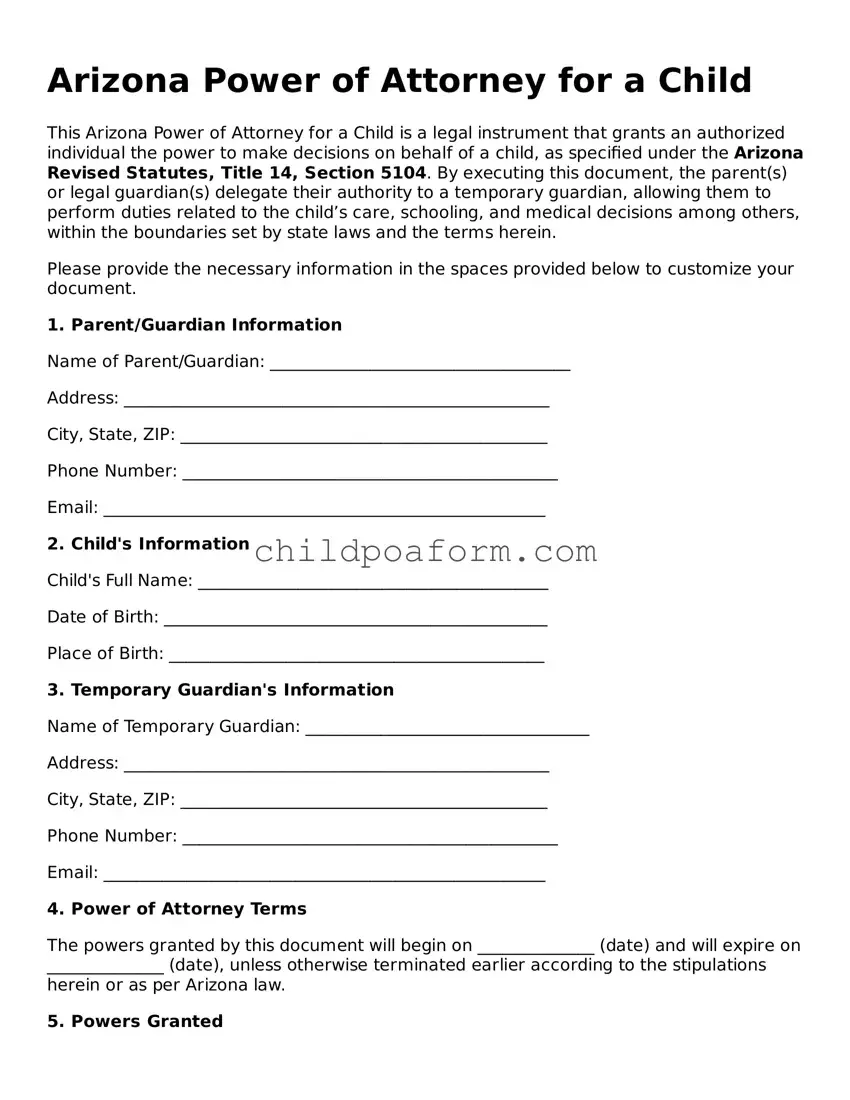Instructions on Utilizing Arizona Power of Attorney for a Child
The creation of a Power of Attorney for a child is a significant step in ensuring the well-being and safety of a minor when the parent or guardian is unable to be present due to various reasons, such as illness, deployment, or extended travel. This legal document allows the parent or legal guardian to grant authority to another trusted adult to make decisions regarding the care of the child, including educational and medical decisions. It is vital to approach this process with attention to detail to ensure the document reflects the wishes of the parent or guardian accurately and is executed in compliance with Arizona state law.
To fill out the Power of Attorney for a Child form in Arizona, follow these steps:
- Gather necessary information, including the full legal names and addresses of the parent or guardian, the appointed agent, and the child. Additionally, have details regarding the specific authorities being granted and the time period the document will cover.
- Locate the correct form. Ensure that it is the most current version as per Arizona law to avoid any potential issues with its legality.
- Begin by entering the date the document is being filled out at the top of the form.
- Fill in the name(s) of the parent(s) or legal guardian(s) as the grantor(s) of the power of attorney, including their full legal names and physical addresses.
- Input the name of the person being designated as the agent, along with their full legal name and physical address.
- Detail the specific powers being granted to the agent. This might include making educational decisions, consenting to medical treatment, and other significant responsibilities related to the child's care.
- Specify the timeframe for which the power of attorney will be effective. This should include both the start and the end dates.
- Ensure that all parties involved – the parent(s) or guardian(s) and the appointed agent – sign the form in the presence of a notary public. The notary public will also need to sign and affix their seal to the document, making it legally binding.
- Keep the original signed document in a safe but accessible place. Distribute copies to relevant parties such as the agent, schools, medical providers, or any institutions that might require it to acknowledge the agent's authority.
In summary, while the process may appear straightforward, the creation and completion of a Power of Attorney for a Child require careful thought and diligent attention to detail. Each step is crucial in ensuring the document is valid and that the child's needs can be appropriately met by the designated agent in the parent or guardian's absence. It is advised to review the filled form for accuracy and compliance with Arizona law or to consult legal counsel if any uncertainties arise. This ensures the protection of the child's interests and the peace of mind for the parent or legal guardian.
